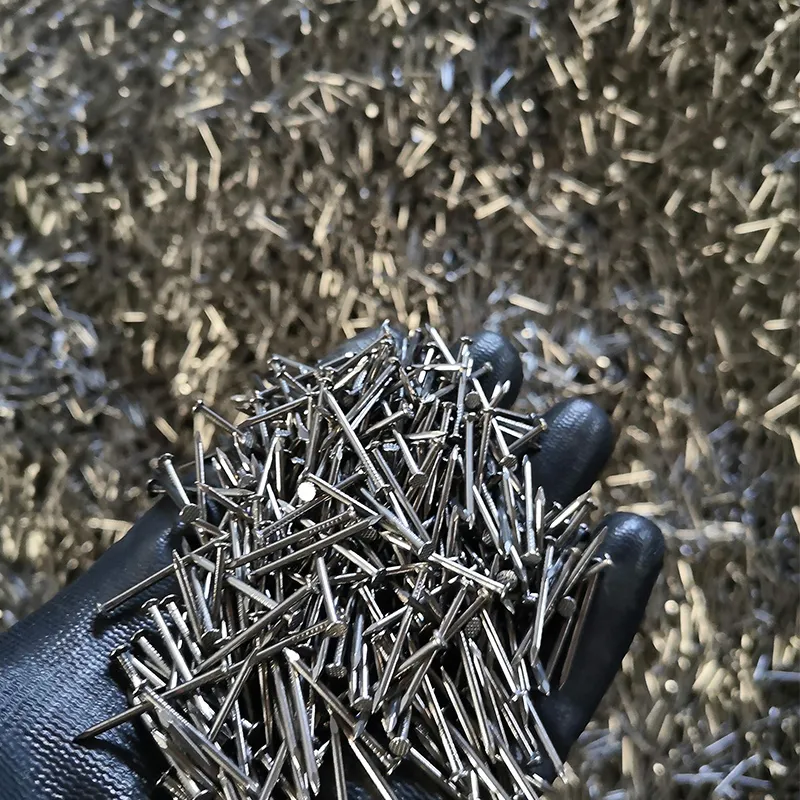nov . 10, 2024 05:41 Back to list
Effective Solutions for Field Fencing with Durable Wire Options
The Importance of Field Fencing Wire A Comprehensive Overview
When it comes to managing agricultural land and livestock, field fencing wire plays an essential role. It serves not only as a physical barrier but also as a means of ensuring the safety and health of both animals and crops. In this article, we will explore the various types of field fencing wire, their applications, and the benefits they offer to farmers and landowners.
Different Types of Field Fencing Wire
Field fencing wire is available in several materials and styles, each suited for specific applications. The most common types include
1. Barbed Wire This is perhaps the most recognized form of fencing wire. Barbed wire consists of a series of sharp edges or points that deter animals from crossing the boundary. While often used for cattle and other livestock, it is also employed to keep out wildlife. Barbed wire is usually made from galvanized steel to prevent corrosion and increase its lifespan.
2. Wire Mesh Fencing Wire mesh fencing features a grid-like design that provides a more secure barrier than barbed wire. This type is particularly effective for smaller animals, such as goats or sheep, as it prevents them from escaping and keeps predators at bay. Additionally, wire mesh fencing can be used in gardens to protect crops from browsing animals.
3. Electric Fencing As technology advances, electric fencing has become a popular choice among farmers. This type of fence uses a high-voltage electric current to deter animals from crossing the boundary. Electric fencing is highly effective for containing livestock, particularly because it provides a psychological barrier. Once animals experience the shock, they are less likely to attempt crossing the wire again.
4. High-Tensile Fencing High-tensile wire is made from stronger steel and is designed to withstand significant tension without breaking. This type of fencing can cover large areas and is often used in pastures for cattle. It requires fewer posts compared to traditional barbed wire fencing, which makes installation easier and more cost-effective.
Applications of Field Fencing Wire
Field fencing wire has myriad applications in agriculture and land management
- Livestock containment The primary function of any fence is to keep animals in and unwanted critters out. Fencing wire effectively helps farmers manage their livestock, ensuring they remain within designated pastures.
field fencing wire

- Crop protection Field fencing wire can act as a barrier against animals looking to feast on crops. This protects not only the financial investment in crops but also ensures a steady food supply.
- Wildlife management In regions where wildlife populations may encroach on farming areas, fencing wire can help minimize conflicts between farmers and animals like deer, rabbits, or feral pigs.
- Boundary demarcation Fencing wire also serves to clearly mark property lines, thus preventing disputes between neighbors and ensuring that everyone is aware of their land boundaries.
Benefits of Field Fencing Wire
The advantages of investing in quality field fencing wire are numerous
1. Durability Many types of fencing wire, especially those made from galvanized steel, can withstand harsh weather conditions. This durability means less frequent replacements and maintenance, which is vital for the economy of farming operations.
2. Cost-effectiveness While the initial investment in fencing wire can seem high, the long-term savings in terms of crop protection, livestock management, and reduced loss from animal conflicts make it a wise investment.
3. Flexibility Different fencing wire types offer versatile solutions for various agricultural needs. Whether it’s keeping larger animals contained or protecting crops from smaller pests, there is a fencing solution tailored to specific requirements.
4. Increased Productivity With effective fencing in place, farmers can allocate their time and resources more efficiently, knowing that their livestock and crops are protected. This leads to improved productivity and overall farm management.
In conclusion, field fencing wire is an indispensable tool for farmers and landowners. By providing security, defining boundaries, and protecting crops and livestock, it contributes significantly to agricultural success. As technology continues to evolve in this field, there will undoubtedly be further innovations that enhance the effectiveness and reliability of fencing solutions. Investing in high-quality field fencing wire is not just about prevention; it’s about securing a prosperous and sustainable agricultural future.
-
The Role of Field Wire Fence in Grassland Conservation
NewsJul.15,2025
-
Stainless Steel Razor Wire Durability in Coastal Environments
NewsJul.15,2025
-
Enhancing Home Security with Mesh Fences
NewsJul.15,2025
-
Diamond Mesh Wire for Small Animal Enclosures
NewsJul.15,2025
-
Common Wire Nail Tensile Strength Testing for Woodworking
NewsJul.15,2025
-
Barbed Wire Corrosion Resistance Galvanization Techniques
NewsJul.15,2025









